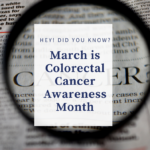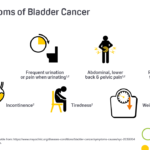- Home
- Locations
- For Individuals
- For Organizations
- CEO Health/Executive Assessment
- Independent Medical Assessments
- Employee Health
- Functional Abilities Evaluation Services
- Functional Medicine Evaluation (FME) Services
- Independent Medical Evaluation (IME) Services
- Job Site Assessment Services
- Labour Market Re-entry Assessment Service
- Neuropsychological Assessment Services
- Non-Medical Summary Services
- Physical Demands Analysis (PDA) Services
- Pre-Employment Medical Services
- Vocational and Employability Assessment Service
- For Diplomats
- About
- Contact
- Home
- Locations
- For Individuals
- For Organizations
- CEO Health/Executive Assessment
- Independent Medical Assessments
- Employee Health
- Functional Abilities Evaluation Services
- Functional Medicine Evaluation (FME) Services
- Independent Medical Evaluation (IME) Services
- Job Site Assessment Services
- Labour Market Re-entry Assessment Service
- Neuropsychological Assessment Services
- Non-Medical Summary Services
- Physical Demands Analysis (PDA) Services
- Pre-Employment Medical Services
- Vocational and Employability Assessment Service
- For Diplomats
- About
- Contact
- Home
- Locations
- For Individuals
- For Organizations
- CEO Health/Executive Assessment
- Independent Medical Assessments
- Employee Health
- Functional Abilities Evaluation Services
- Functional Medicine Evaluation (FME) Services
- Independent Medical Evaluation (IME) Services
- Job Site Assessment Services
- Labour Market Re-entry Assessment Service
- Neuropsychological Assessment Services
- Non-Medical Summary Services
- Physical Demands Analysis (PDA) Services
- Pre-Employment Medical Services
- Vocational and Employability Assessment Service
- For Diplomats
- About
- Contact
- Home
- Locations
- For Individuals
- For Organizations
- CEO Health/Executive Assessment
- Independent Medical Assessments
- Employee Health
- Functional Abilities Evaluation Services
- Functional Medicine Evaluation (FME) Services
- Independent Medical Evaluation (IME) Services
- Job Site Assessment Services
- Labour Market Re-entry Assessment Service
- Neuropsychological Assessment Services
- Non-Medical Summary Services
- Physical Demands Analysis (PDA) Services
- Pre-Employment Medical Services
- Vocational and Employability Assessment Service
- For Diplomats
- About
- Contact
Seasonal Allergies

Colorectal Cancer Awareness Month
March 12, 2021
7 Signs of Bladder Cancer That You Shouldn’t Ignore
May 14, 2021Do you find yourself having cold-like symptoms such as sneezing, itchy nose, red and watery eyes at certain times of the year? To be specific, from April to May; June to July; August to October. If you answered yes, then you may have what we call seasonal allergy, oftentimes referred to as “hay fever”.
If you suspect that you have hay fever or if you have asthma, keep on reading because this month marks the start of allergy season. This is important for asthma patients because they are more likely to have seasonal allergies, and if they do, it tends to make their asthma worse.
Causes of Seasonal Allergies
Seasonal allergy can be caused by both hereditary and environmental factors. It strikes during a specific season when trees (April-May), grass (June-July), and ragweed (August to October) release tiny pollen particles that trigger the allergic reaction.
Symptoms of Seasonal Allergies
The common symptoms of seasonal allergies are:
- watery and itchy eyes
- runny or stuffy nose
- sneezing and coughing
- itchy throat, mouth, nose, and ear.
- ear congestion
- postnasal drainage
- frequent headaches
- fatigue
The symptoms can easily be recognized but due to the similarities of symptoms between other conditions—it can easily be mistaken for another condition—such as allergic conjunctivitis, sinusitis, and even COVID. Which is why it is important to have a consultation with a doctor to correctly identify if you indeed have a seasonal allergy or something else.
Some External Factors to Watch Out For
Watch out for these external factors to avoid triggering and possibly even worsening your seasonal allergy.
- strong-scented perfume
- cigarette smoke
- chemicals
- cold temperatures
- humidity
- fumes and smoke
Can Seasonal Allergy Be Cured?
Unfortunately, there’s currently no cure for seasonal allergy, but there are multiple treatments to relieve the symptoms, at least to a certain degree.
If you’re unsure whether you have a seasonal allergy or something else, La Vie is here to help you. By booking an assessment, we’ll be able to diagnose your condition correctly. In addition to that, we’ll also guide you on how to properly manage and treat the condition so you can have a good quality of life.
You can book an assessment by calling (613) 592-0862 or you can complete the form on this page to have a patient advisor call you.





